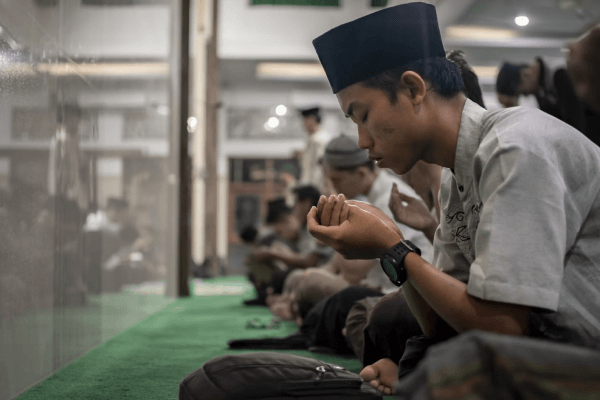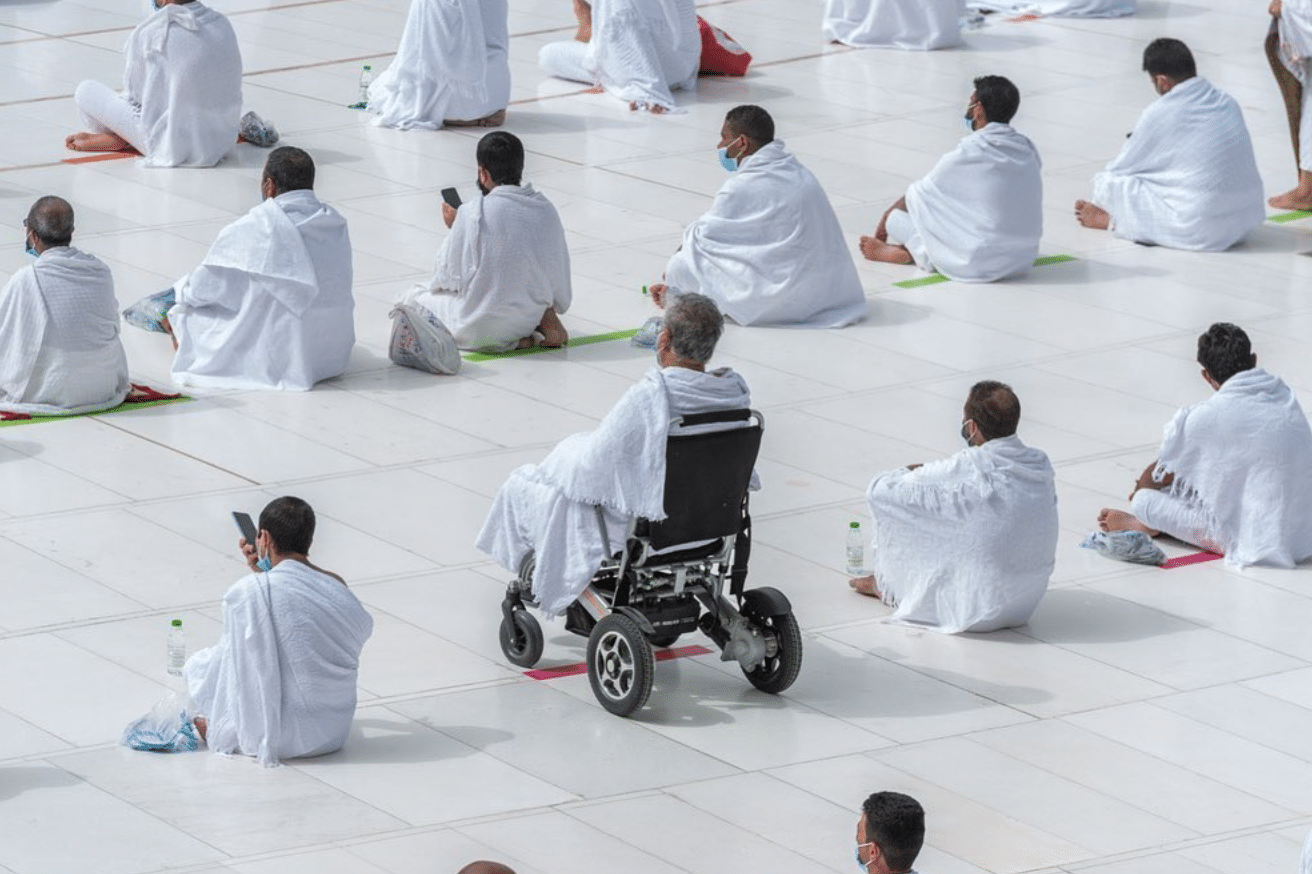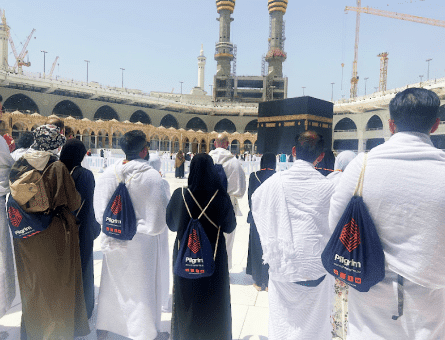Ziyarah – What is Ziyarah in Islam? and How To Perform
Ziyarah is considered to be a highly recommended act of worship in Islam. It is a significant act of worship in Islam that allows Muslims to seek blessings, strengthen their faith, connect with history, and promote unity within the Muslim community.
By following the etiquettes of ziyarat and having a sincere intention, Muslims can derive great spiritual benefits from this practice.
Many people, especially those who are new to Islam don’t know much about the search term. This guide will highlight the meaning, significance, and permissibility of ziyarah.
Here you will learn about how to perform the action and the benefits of the action as per Islamic scholars.
What is Ziyarah in Islam?
Muslims perform ziyarat to pay their respects, seek blessings, and offer supplications. Individuals who are physically able to must undertake the action at least once in their lifetime.
What does Ziyarat mean in Arabic?
Ziyarat is an Arabic term that literally translates as visitation. The term refers to the act of visiting places that are considered holy in Islam.
Performing Hajj and Umrah are also considered ziyarat. The journey to the sacred land of Makkah (see Makkah map below) to perform Hajj and Umrah Taqsir in ihram is considered one of the highest virtuous acts in Islam that absolves all minor sins. Muslims perform tawaf during Hajj and perform other compulsory rites.
During Hajj and Umrah, Muslims visit sacred places in Makkah such Mina, Miqat, and Hira cave. The ziyarat of Hajj and Umrah involves a journey to the holy cities where pilgrims perform a series of rituals and prayers, including the Tawaf (circumnavigating the Kaaba), the Sa’ee (running between Safa and Marwa), and the Stoning of the Devil.
These rituals during Hajj and Umrah in Makkah are seen as acts of devotion to Allah (SWT) and are an important part of Muslim faith and tradition.
Some of the important places to visit during Hajj and Umrah in Makkah include the following.
- Kaaba: The Kaaba is a cube-shaped building located in the centre of the Great Mosque of Mecca. It is the most sacred site in Islam, and Muslims face towards it during Hajj and also their daily prayers.
- Masjid al-Haram: The Great Mosque of Mecca, also known as Masjid al-Haram, is the largest mosque in the world and surrounds the Kaaba. It is the focal point of the Hajj and Umrah pilgrimage and can accommodate millions of worshippers in Makkah.
- Mount Arafat: Mount Arafat is a hill located about 20 kilometres east of Mecca. It is the site where the Prophet Muhammad (PBUH) gave his last sermon, and it is considered the most important site during the Hajj pilgrimage. Pilgrims spend the day of Arafat in prayer and reflection.
- Mina: Mina is a valley located about 5 kilometres east of Mecca. It is the site where pilgrims stay in tents during the Hajj pilgrimage, and it is also the site of the symbolic stoning of the devil.
- Muzdalifah: Muzdalifah is a plain located between Mina and Mount Arafat. It is the site where pilgrims collect pebbles for the stoning of the devil ritual. Pilgrims also spend the night here during the Hajj and Umrah.
- Jamarat: Jamarat is a set of three pillars in Mina that represent the devil. Pilgrims perform the stoning of the devil ritual by throwing pebbles at the pillars.
- Madinah: Madinah is a city located about 400 kilometres north of Mecca. It is the second holiest city in Islam and the site of the Prophet Muhammad’s (PBUH) tomb. Many pilgrims visit Madinah before or after the Hajj and Umrah pilgrimage
Visiting holy mosques such as the Masjid Nabawi is also an act of ziyarat. Muslims receive great rewards for praying in the Masjid al Haram in Makkah and masjid Nabawi (Prophet Mosque) in Medina during Hajj and Umrah, and Masjid Aqsa in Palestine.
Additionally, visiting the grave of the greatest Prophet Muhammad (Peace Be Upon Him) and giving salawat or salutation is considered a recommended act when visiting masjid Nabawi.
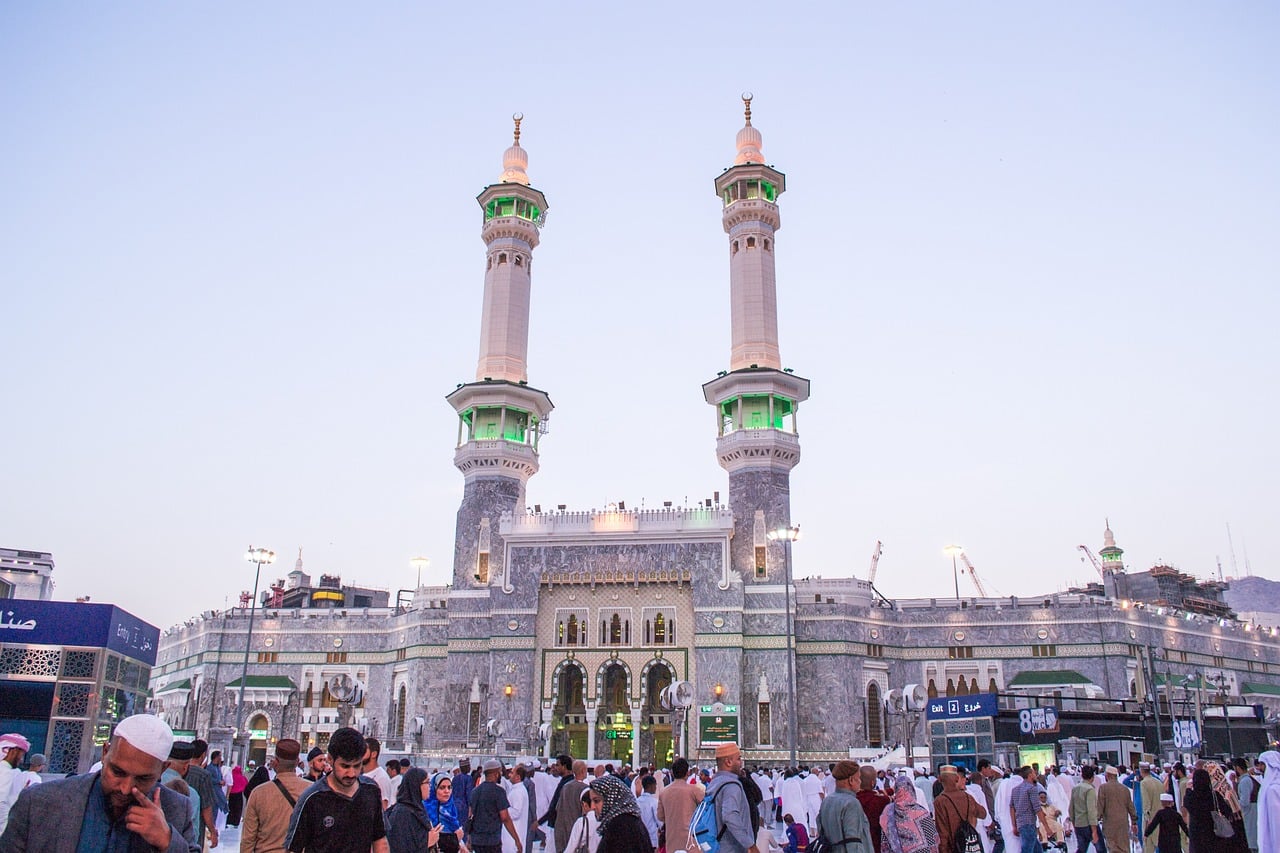
Is Ziyarat permissible in Islam?
Ziyarat or visiting the holy lands and graves is allowed in Islam. There are many hadith or sayings of the Prophet Muhammad (Peace Be Upon Him) that encourage visiting these places, such as:
- “O you who come to Madinah, you are in a place which, after Makkah, is the best and noblest of all places, so respect it as it should be respected; honour its sanctity and holiness and observe the best etiquette therein.” (Al-Bukhari, 1867; Muslim, 1370).
- “I had prohibited you from visiting graves, but you may visit them now.” (Muslim, 977; Sunan Ibn Majah 1571).
But women are not allowed to visit graves as the prophet Muhammad (Peace Be Upon Him) cursed women who regularly visited graves as in the following hadith.
- Ibn Abbās (radiyallāhu ‘anhumā) said: “Allah’s Messenger invoked the curse of Allah upon the women who continually visit the graves and those people who build mosques (places of devotion) over them and place lights over them. (Saheeh Al-Jāmi’ no. 4985; classified as Sahi).
Remember that ziyarat is a way to remember the dead and to show our respect for them. It is also a way to remind ourselves of our own mortality and to prepare ourselves for the Hereafter. However, it is important to avoid certain actions when visiting graves that are prohibited in Islam, such as:
- Praying to the dead
- Asking the dead for help
- Making offerings to the dead
- Touching the graves
- Sitting on the graves
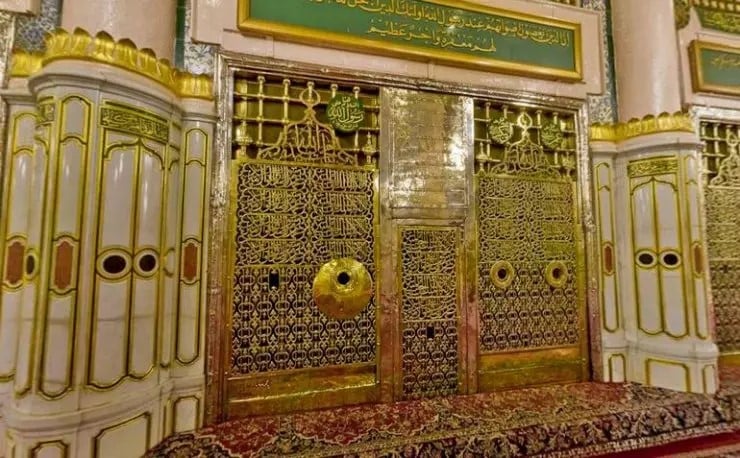
Note that this entry has been shown for information purposes only. On no account should anybody pray to a grave or seek supplication through them as this is tantamount to committing shirk, associating partners with Allah (ﷻ)
How to prepare for Ziyarat?
You can prepare for ziyarat in many ways. Here are a few suggestions:
- Make a sincere intention to do it for the sake of Allah. This will help you to focus on the spiritual aspects of the ziyarat and to avoid any distractions.
- Prepare yourself mentally and emotionally. Ziyarat can be a very emotional experience, so it is important to be prepared for this.
- Learn about the place you are visiting. This will help you to understand their significance and to appreciate their contributions to Islam.
- Dress modestly and respectfully. This is a sign of respect for the person you are visiting and for the place you are visiting.
- Be respectful of the other visitors. Ziyarat is a sacred place, so it is important to be respectful of the other people who are there.
Here are some additional tips for making the most of your ziyarat:
- Spend time in silence. This can help you to connect with your inner self and to experience the peace and tranquillity of the ziyarat.
- Read the Quran. This can help you to earn great rewards as there is a reward for reciting every word in the Quran.
- Meditate or reflect on your own mortality. Ziyarat is a good opportunity to think about your own life and to make plans for the Hereafter.
- Pray for the person you are visiting. This is the most important thing you can do during a ziyarat.
How to perform Ziyarat?
Performing ziyarat involves visiting the holy places during Hajj and Umrah and seeking blessings and forgiveness from Allah. Here are some general guidelines on how to perform ziyarat:
- Make a sincere intention: Before undertaking ziyarat, it is important to make a sincere intention to seek the blessings of Allah and gain spiritual benefits from the visit.
- Dress modestly: It is recommended to dress modestly and respectfully when visiting holy places. Men should cover their heads and wear clean and appropriate clothing, while women should wear hijab and dress modestly.
- Recite salutations and supplications: When approaching a grave of our prophet Muhammad (Peace Be Upon Him), Muslims are encouraged to recite salutations and say salaam or the dua for seeking forgiveness from Allah.
- Show respect and reverence: Muslims should show respect and reverence to the holy figures by avoiding any inappropriate behaviour, such as talking loudly or taking pictures.
- Offer charity: Muslims may also offer charity to the poor as a way of showing gratitude and seeking blessings.
It is important to note that the specific rituals and customs of ziyarat may vary depending on the holy land being visited and the cultural traditions of the region. Therefore, it is advisable to seek guidance from a knowledgeable imam or scholar before undertaking ziyarat for Hajj and Umrah in Makkah and Madinah.
Do I need Wudu to perform Ziyarat?
Performing Wudu is necessary before entering any mosque. It is also recommended to perform ritual ablution (wudu) before visiting a grave.
What are the benefits of Ziyarat?
Visiting the sacred lands in Islam is considered a significant act of worship with several spiritual and religious benefits. Here are a few of the reasons why Muslims may undertake such visits.
Connecting to Muslim Heritage
The two holy mosques are located in historically significant places i.e., Mecca and Medina in Saudi Arabia.
The cities are considered the birthplace of Islam. Visiting these sites can help Muslims to connect with the rich history of Islam and gain a greater understanding of their religious heritage.
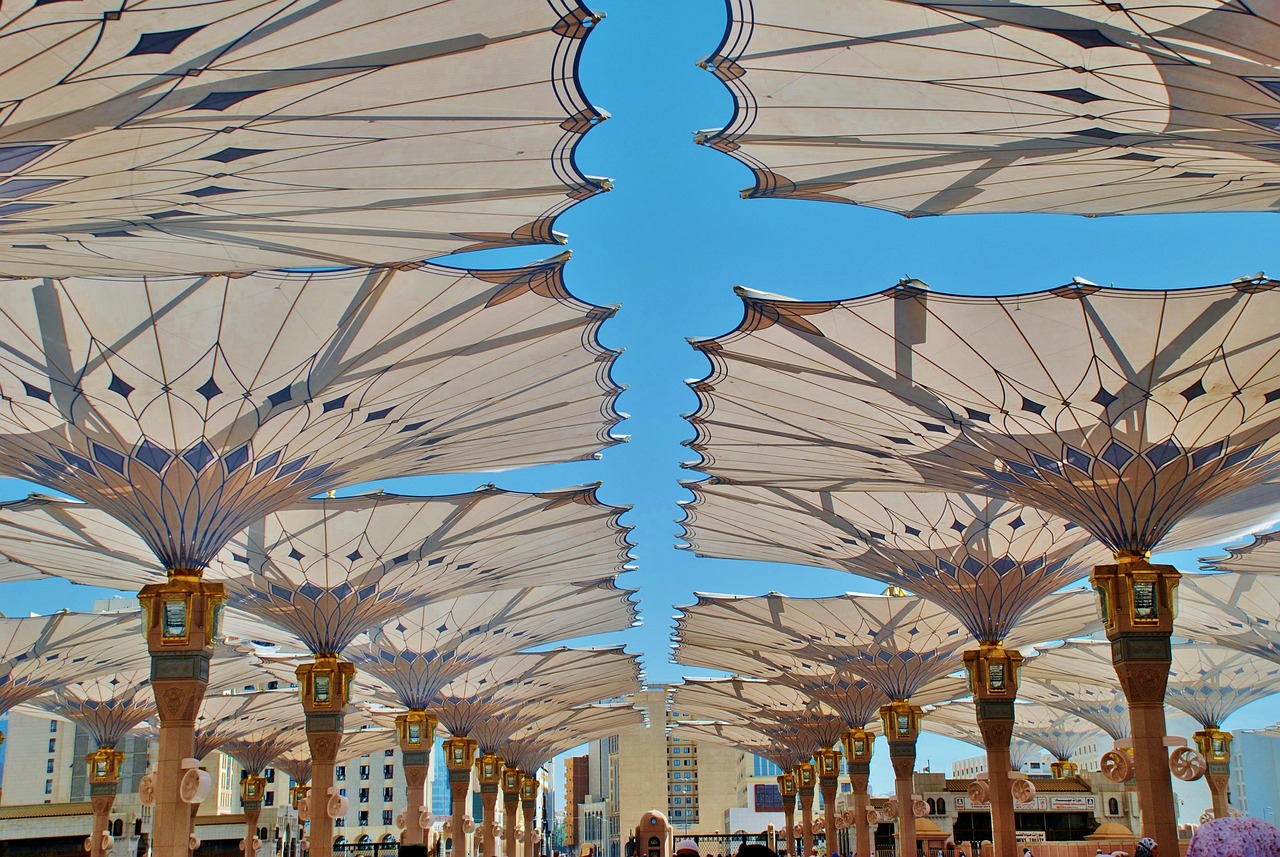
Unity and Brotherhood
Visiting the holy lands can also serve as a means of promoting unity and brotherhood within the Muslim community.
Muslims from different parts of the world and different backgrounds may come together to perform ziyarat, strengthening their bonds of faith and community.
Strengthening Faith
Ziyarat can be a very rewarding experience. Visiting holy places can help Muslims to strengthen their faith and deepen their connection to Islam.
Praying inside the two holy mosques in Mecca and Madinah can bring great blessings and forgiveness from Allah.
Summary – Ziyarah in Islam
Visiting holy places in Islam is considered a way to get closer to Allah Almighty and seek His blessings and forgiveness, while also deepening one’s faith, connecting to history, and promoting unity within the Muslim community.
By visiting holy places, Muslims can also gain a deeper appreciation for the teachings and values of Islam. You can make the most of your ziyarat and gain a deeper understanding of Islam by following the tips mentioned in this blog post
Through His Names
New course with
Ustadh Shabbir Hassan




